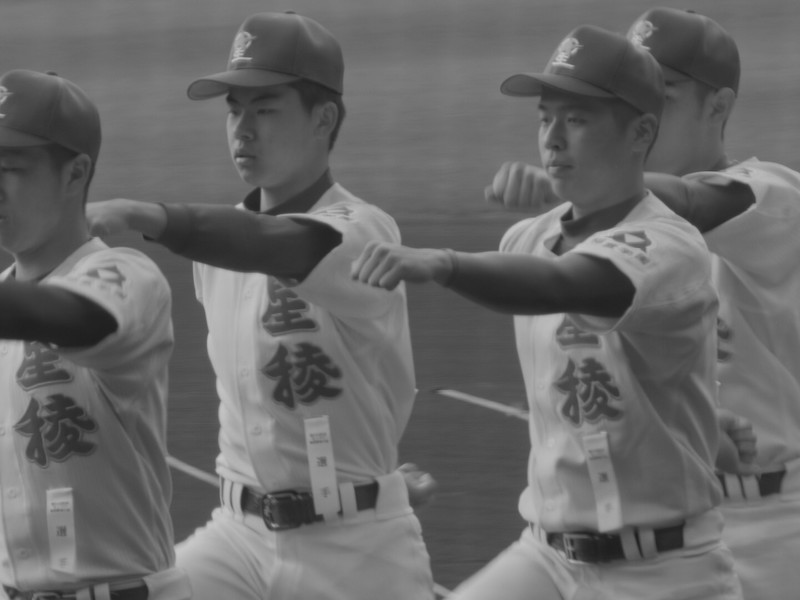Festival starts in
Kokutai / Japan / North American Premiere

SHORT DOCUMENTARY
Literalising the titular term roughly translatable as ‘body politic’, Kokutai examines the spectacular aesthetics of Japan's biannual national high school baseball tournaments.
Director's Bio
Ryushi Lindsay is a Tokyo-based, Anglo-Japanese filmmaker. Having majored in Film Studies at King's College London, he is particularly drawn to theory-driven political filmmaking that disrupts the institutions of dominant cinema.
Director's Statement
With Kokutai, I build on ideas presented in such texts as Susan Sontag’s essay, ‘Fascinating Fascism’ (1975) and Alexander Kluge’s film, Brutality in Stone (1961), referencing Leni Riefenstahl and Mishima Yukio in an exploration of fascist and nationalist aesthetics in Japanese high school baseball (Koshien).
The title is borrowed from the ambiguous Japanese term potentially translatable as 'national essence', 'national body', or 'body politic', combining the kanji for ‘nation’ and ‘body’. Dating to at least the 19th century, in the 1930s it came to be associated with nationalism, an omnipotent emperor, and ideas of national purity in opposition to the growth of Western values and societal influences - a set of policies of philosophies under which the people of Japan were to unite as one political body or family under the rule of the living-god Emperor. Here, I wish to literalise this aforementioned body, examining how the bodies of the pictured male athletes become rendered political sites of physical supremacy and purity under the gaze of a nation drawn to the spectacle of the spring and summer Koshien, drawing comparisons to the unifying effect of the 1936 Berlin Olympics. I aim to establish the ways Koshien espouses the aesthetics of fascism whilst disrupting these images through score and editing in order to encourage greater critical engagement.
Director's Bio
Ryushi Lindsay is a Tokyo-based, Anglo-Japanese filmmaker. Having majored in Film Studies at King's College London, he is particularly drawn to theory-driven political filmmaking that disrupts the institutions of dominant cinema.
Director's Statement
With Kokutai, I build on ideas presented in such texts as Susan Sontag’s essay, ‘Fascinating Fascism’ (1975) and Alexander Kluge’s film, Brutality in Stone (1961), referencing Leni Riefenstahl and Mishima Yukio in an exploration of fascist and nationalist aesthetics in Japanese high school baseball (Koshien).
The title is borrowed from the ambiguous Japanese term potentially translatable as 'national essence', 'national body', or 'body politic', combining the kanji for ‘nation’ and ‘body’. Dating to at least the 19th century, in the 1930s it came to be associated with nationalism, an omnipotent emperor, and ideas of national purity in opposition to the growth of Western values and societal influences - a set of policies of philosophies under which the people of Japan were to unite as one political body or family under the rule of the living-god Emperor. Here, I wish to literalise this aforementioned body, examining how the bodies of the pictured male athletes become rendered political sites of physical supremacy and purity under the gaze of a nation drawn to the spectacle of the spring and summer Koshien, drawing comparisons to the unifying effect of the 1936 Berlin Olympics. I aim to establish the ways Koshien espouses the aesthetics of fascism whilst disrupting these images through score and editing in order to encourage greater critical engagement.
Website Design & Internet Marketing by Teamwork Solutions

